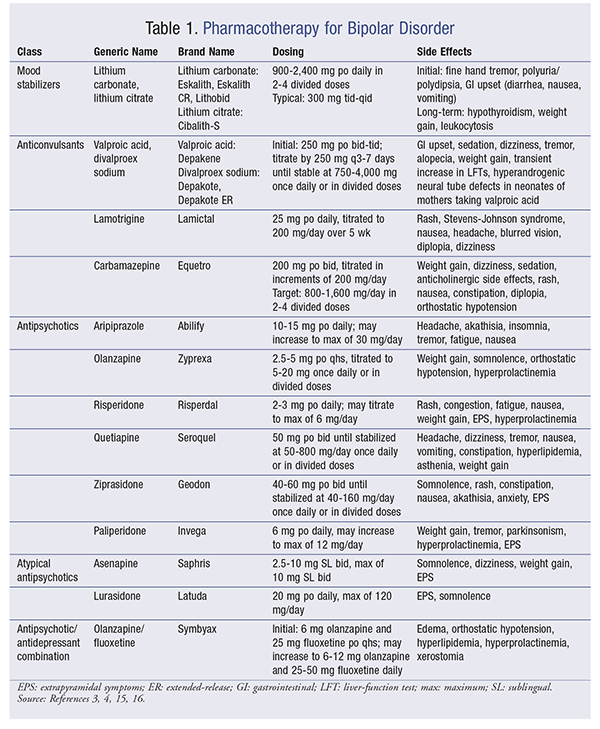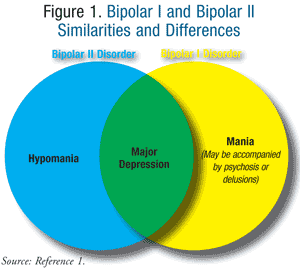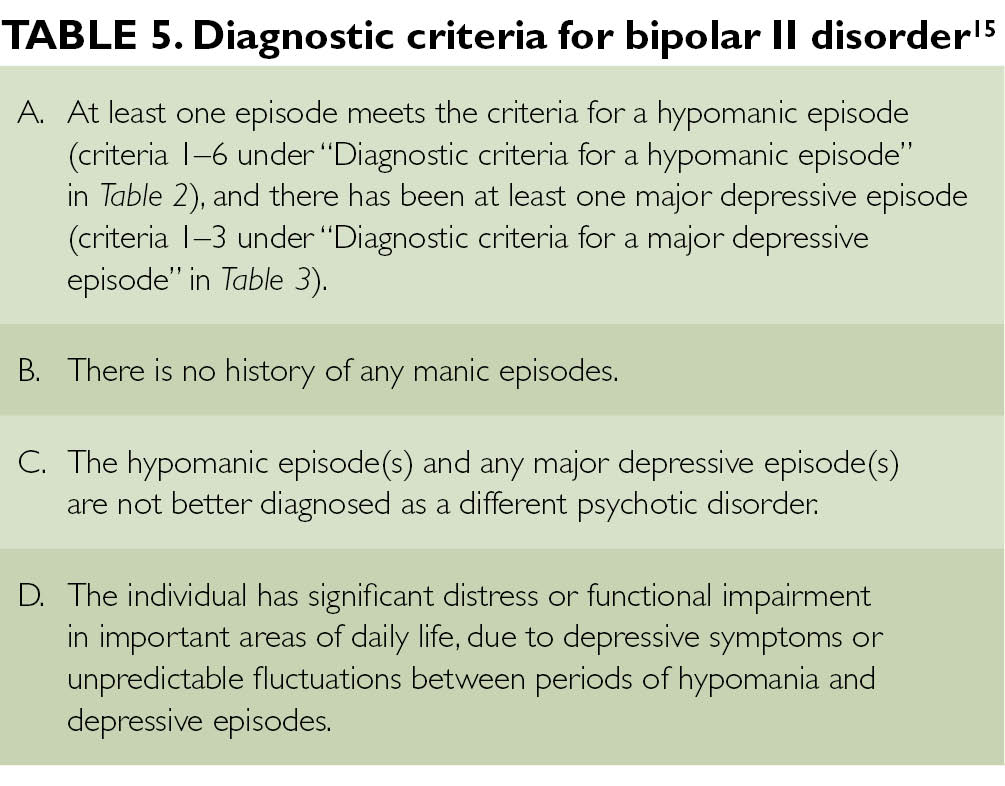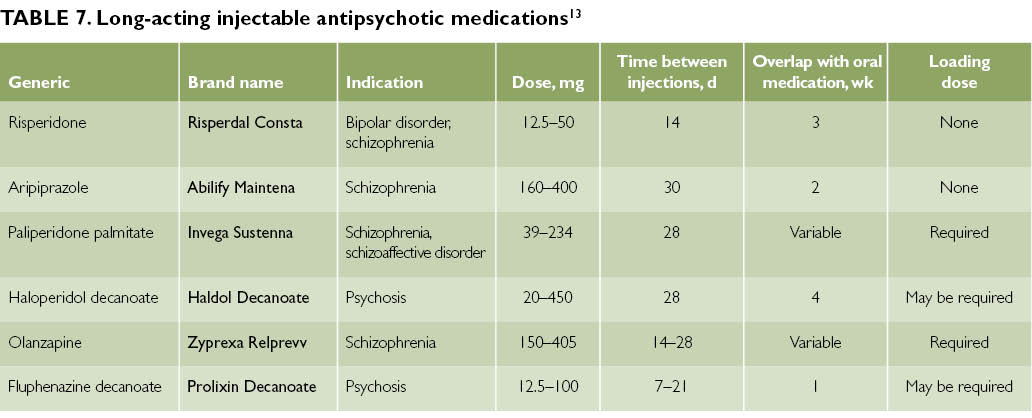Patients with bipolar disorder may be prescribed antipsychotic medications alone or alongside another mood stabilizer. Olanzapine Zyprexa Risperidone Risperdal.

Bipolar Disorder Symptoms And Treatment Clinical Advisor
Bipolar disorder type II is commonly treated with the same medications at bipolar I.
Medicine for bipolar type 2. 12 Even with treatment about 37 of patients relapse into depression or mania within 1 year and 60 within 2 years. Bipolar disorders types I and II affect about 2 of the worlds population with subthreshold forms of the disorder affecting another 2. Medicines for bipolar disorder.
Hypomania is a sustained state of elevated or irritable. Lithium is the most researched of all bipolar disorder treatments. Atypical antipsychotics should not be included unless you are experiencing psychotic symptoms in the case of people with Bipolar I Disorder.
Bipolar II disorder is a bipolar spectrum disorder characterized by at least one episode of hypomania and at least one episode of major depression. Youll typically need mood-stabilizing medication to control episodes of mania or hypomania which is a less severe form of mania. Diagnosis for bipolar II disorder requires that the individual must never have experienced a full manic episode.
76 rows Bipolar disorder can be treated. Among them lurasidone offers a good balance of efficacy and tolerability. 17062020 Treatment for bipolar II disorder usually involves a combination of medication and psychotherapy.
You can take them alone or with mood stabilizers to help with symptoms of mania. If youre already taking medicine for bipolar disorder and you develop depression your GP will check youre taking the correct dose. Common bipolar medications in this category include.
If a person stops treatment. For best results medication needs to be combined. 08022019 Lithium goes by the generic names lithium carbonate capsules and tablet form and lithium citrate liquid form as well as several trade names such.
05072021 Several medications of this type have also proven long-term effectiveness in preventing episodes of mania and depression. It is usually long term and continuous. Examples of mood stabilizers include lithium Lithobid valproic acid Depakene divalproex sodium Depakote carbamazepine Tegretol.
The fact that there tends to be more depressive episodes in bipolar II requires that medications like lamotrigine quetiepine and lurasidone. 09102019 Often this is done with medication cocktails combinations of mood stabilizers with other bipolar approved medications such as certain antidepressants andor anti-psychotics. 09102019 The most commonly prescribed medications for Bipolar Disorder both I and II are mood stabilizers and anti-depressants.
Otherwise one manic episode meets the criteria for bipolar I disorder. Below is a list of all possible medications used to treat Bipolar Disorder. Common antidepressants such as fluoxetine paroxetine and sertraline are also sometimes used in bipolar II depression and are thought to be less likely to cause or worsen hypomania than is the.
Drugs called antipsychotic medications are also common in bipolar treatment plans. 14022018 Whether you have bipolar I or II medications may include. These are commonly called mood stabilisers and include.
13052020 The ones that treat bipolar depression are cariprazine Vraylar lurasidone Latuda olanzapine-fluoxetine combo Symbyax and quetiapine Seroquel. However the proportion of the time spent depressed as opposed to hypomania is remarkably greater. 3 In the STEP-BD cohort n1469 58 of patients with bipolar disorder types I and II achieved.
Several medicines are available to help stabilise mood swings.

Management Of Bipolar Disorder

Bipolar Disorder Signs Symptoms And Treatments Psycom

Bipolar Ii Disorder In Adults A Review Of Management Options

Mood Stabilizers For Bipolar Disorder Mind Matters Institute

Managing Bipolar Disorder Pharmacologic Options For Treatment Page 3 Of 3 Clinical Advisor

Managing Bipolar Disorder Pharmacologic Options For Treatment Page 3 Of 3 Clinical Advisor

Bipolar Disorders A Review American Family Physician


0 comments:
Post a Comment